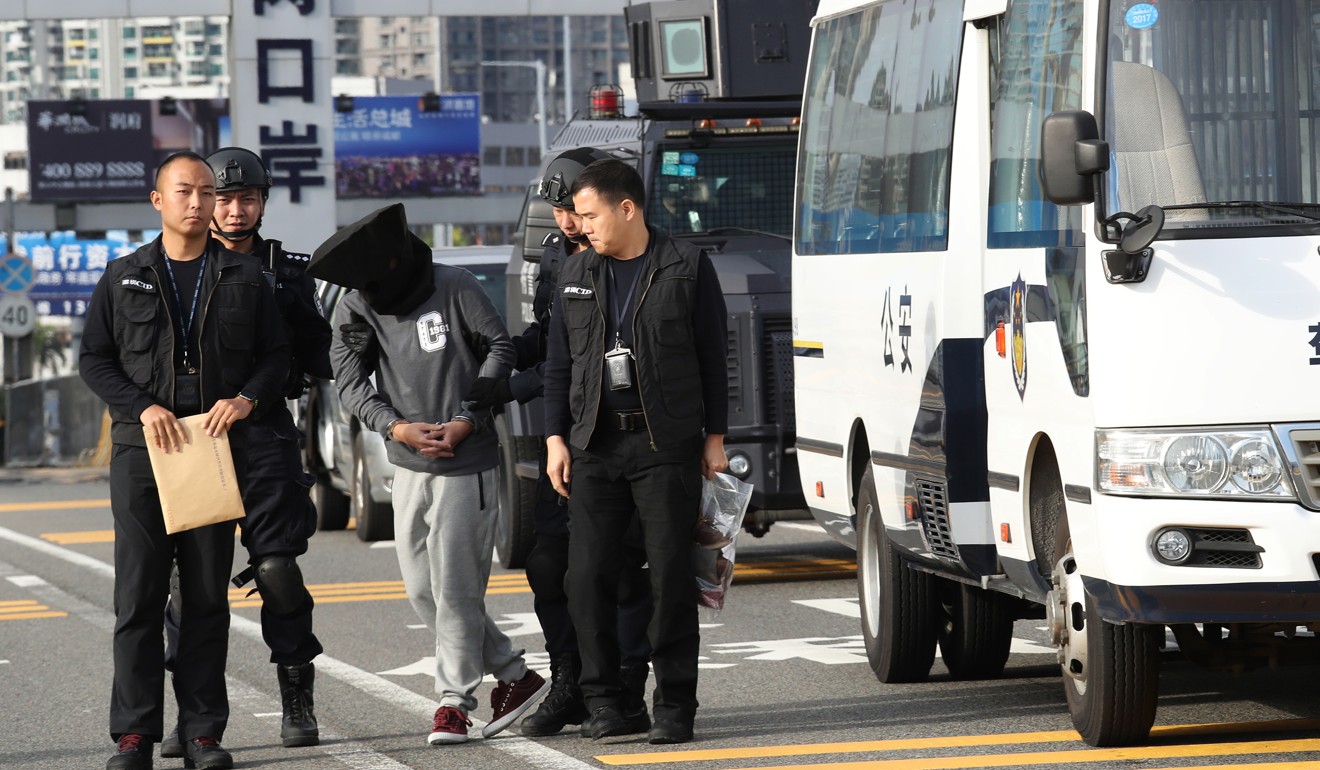
AmCham still has concerns about Hong Kong’s extradition agreement with mainland China, despite efforts to water it down
- City’s most influential American business network says it appreciates efforts to relax plan by wiping nine economic crimes from list but argues it is not enough
- Chamber urges government to consider alternative and ‘more narrowly tailored means’ to address any urgent extradition-related issues
Hong Kong’s most influential American business network said on Friday it “continues to have serious concerns” about a contentious extradition proposal, despite government attempts to water it down earlier this week.
AmCham, comprising 1,500 members and the biggest international business chamber in Hong Kong, said it appreciated the government’s effort but argued it was not enough to ease their serious concerns.

“The new arrangements could be used for rendition from Hong Kong to a number of jurisdictions with criminal procedure systems very different from that of Hong Kong … without the opportunity for public and legislative scrutiny of the fairness of those systems and the specific safeguards that should be sought in cases originating from them,” a statement, issued on Friday, read.
“We strongly believe the proposed arrangements will reduce the appeal of Hong Kong to international companies considering Hong Kong as a base for regional operations.”
Will Carrie Lam pay for revising extradition proposal to mollify businesses?
Chief Executive Carrie Lam Cheng Yuet-ngor had brushed aside the need to conduct a proper public consultation over the rule change and called on the legislature to approve the bill by July to “serve justice”.
The chamber urged the government to consider alternative and “more narrowly tailored means” to address any urgent extradition-related issues the city faced and to consider the views of all the stakeholders in a deliberative process.
The Security Bureau first floated the contentious plan in February, which was immediately condemned by pan-democrats for opening the floodgates to requests to hand over people in Hong Kong wanted across the border – where the right to a fair trial is not guaranteed.
In a written statement, submitted to the bureau earlier this month, AmCham said the city’s international business community had “grave concerns” about mainland China’s legal system and warned the proposal would damage Hong Kong’s reputation as a secure haven for international business.
Opinion: Extradition agreement with the mainland would uphold rule of law
But two leading Chinese law experts have urged critics to look at the long term benefits to having an extradition agreement between Hong Kong and mainland China, even if the legal system across the border still lags behind that of Hong Kong.
University of Hong Kong law professor Fu Hualing said because the city’s court could screen any case put forward by mainland prosecutors, it would force authorities to ensure there would be fair trial.
“Every extradition request would mean the entire Chinese legal system is on trial in a Hong Kong courtroom,” said Fu, who used to oppose any form of extradition deal with the mainland.
“If the mainland doesn’t work to improve and catch up with Hong Kong’s standards, Hong Kong courts could refuse to transfer the fugitives, and that would have a positive impact on the mainland criminal justice system.”
Lin Feng, of City University, said Beijing focused on senior officials, or large corruption cases, and minor economic offences were never its main target.

“As experience grows, and the mainland gradually agrees not to carry out the death penalty, this could help lead to a long-term deal,” he said.
Fu said it would be preferable to have a formalised procedure to deal with those accused of breaking laws across the border, as it was not practical for Hong Kong to simply isolate itself from the mainland system.
“It’s always better to have set of procedures than none, while the Chinese government would have to think twice before publicly requesting extradition,” Fu said.
He said he used to oppose any extradition arrangement between Hong Kong and China, but said the closer ties between the two now called for a proper arrangement.
Nancy Pelosi ‘deeply concerned’ about Hong Kong’s fugitives plan
The US consulate in Hong Kong said it was reviewing the latest revision, while the city’s No 2 official, Matthew Cheung Kin-chung, said there were sufficient safeguards and appeal mechanisms in place, and urged the public to trust the courts, which he said had a good reputation in the region.
The revised bill would also allow extraditions only for offences punishable by three years’ imprisonment, instead of one year as originally proposed.
The bill will be moved to the legislature on April 3.


